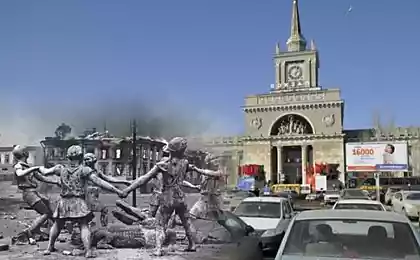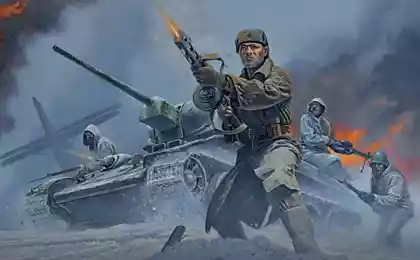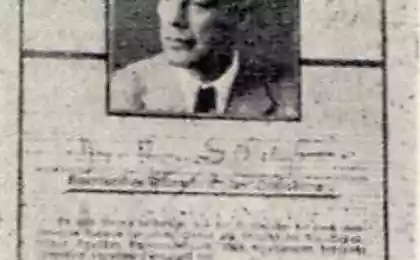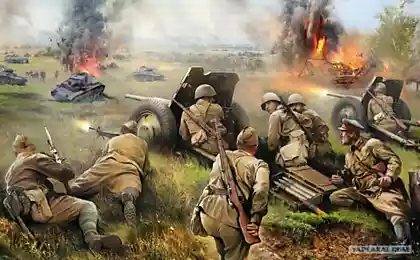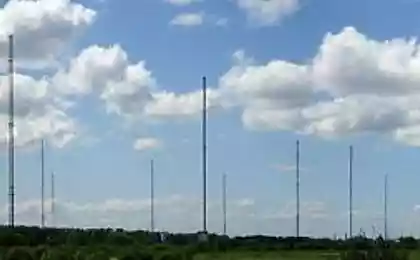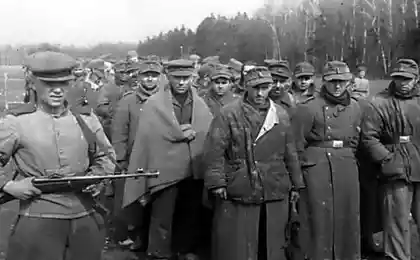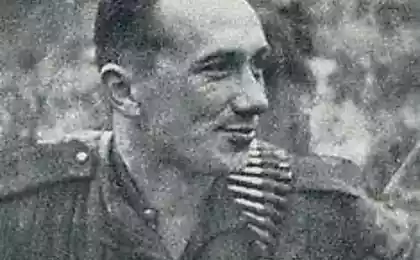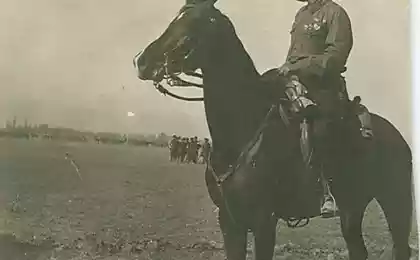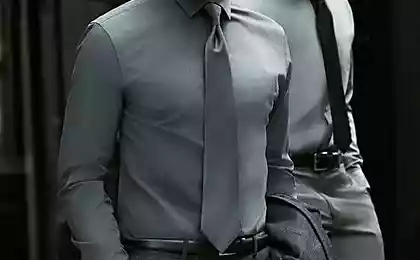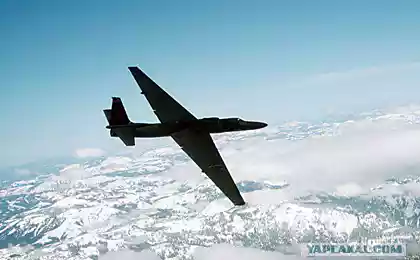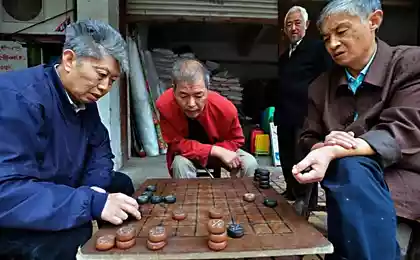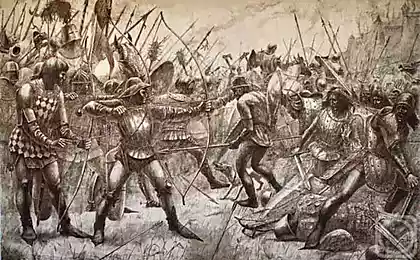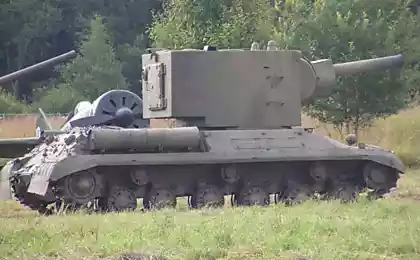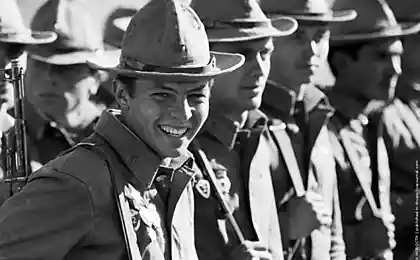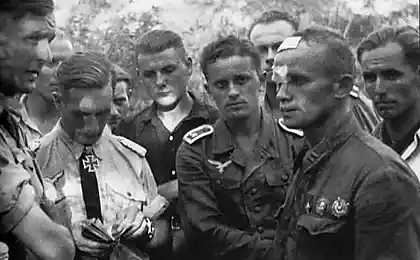775
31.01.1943g. The capture of Paulus
here: www.sovross.ru
Now, 70 years have passed since the great victory of the Red Army ...
The denouement is approaching fast. After receiving a report commander of the 38th Motorized Rifle Brigade, Colonel Burmakova the complete blocking of the area of the fallen fighters, the commander of the 64th Lieutenant-General Shumilov instructed the chief of the Army Staff, Major-General Laskin go to the front line as a representative of the command of the Don Front, to meet with Colonel-General Paulus and accept the surrender of his troops. The capture of the commander was - under all circumstances - a sine qua non. By the time shooting on both sides, near the city department has practically ceased. The time was fifty-eight in the morning on January 31.
However, Major General Laskin to the headquarters of the 6th Army arrived: Burmakov Colonel, Deputy Chief of Operations of the army captain Lyashev, commander of the 2nd Battalion of the brigade senior lieutenant Latyshev and Army Lieutenant Stepanov translator. By the time they arrived in the room the Chief of Staff of the 6th Army were already in: Operations Chief 21st Army Colonel Lukin, deputy chief of the Army Staff for political lieutenant colonel Mutovin, deputy brigade commander for political affairs, Lieutenant Colonel Winokur and Operations Chief of Brigade First Lieutenant Ilchenko.
Suggesting present generals and officers to surrender their weapons, Major General Laskin demanded a personal meeting with Colonel-General Paulus. Gen. Schmidt said in response that Colonel-General Paulus eve the Fuhrer elevated to the rank of Field Marshal, but at the moment he is sick and commanded the 6th Army. To negotiate with the representatives of the Soviet command, he instructed him, Lieutenant-General Schmidt, and the commander of the Southern Group of Forces, Major General Roscoe.
Doubt - and whether there is in the basement of Field Marshal Paulus and even whether he is alive? Otherwise, why he refuses to meet with the authorized representatives of the Red Army?
- Where is the Field Marshal Paulus? - Just put the question to General Schmidt, the head of the Soviet delegation.
Chief of Staff of the 6th Army replied:
- Field Marshal Paulus is in another room of the same basement.
- Report to Field Marshal Paulus Plenipotentiary of the arrival of the delegation of the Don Front and invited him into the room to negotiate personally with him - I asked Major General Laskin.
General Schmidt went into the room the commander of the 6th Army. Returning shortly, he informed the head of our delegation, that Field Marshal Paulus asks twenty minutes to put himself in the proper order.
Replacing tall SS man at the entrance to the room of Field Marshal Paulus Altukhov sergeant, chief of staff of the 64th Army Gen. Schmidt said that he came not to negotiate a surrender and accept the surrender. On behalf of the Don Front Command, he suggested:
- To cease fire and any resistance from the German side;
- Organized at the disposal of the Soviet command the entire staff of the German troops, weapons and military equipment;
- Transfer all operational documents, in particular documents issued by the Supreme Command of the Wehrmacht;
- Stop all radio communications with the higher authorities;
- To report the contents of the last orders of Hitler and the commander of Army Group "Don" Field Marshal von Manstein to the 6th Army.
General Roscoe immediately ordered a soldier sitting on the floor along the walls at the telephone, and they began to transfer the headquarters of subordinate parts of the order of the Commander of the Southern Group of Forces complete ceasefire.
- The requirement for the transfer of operational documents is not feasible, since all of them burned to date - said the Chief of Staff of the 6th Army. - Radio communications with the Wehrmacht High Command more than two days are not kept, since all radios disabled your artillery. With regard to the last orders of Hitler's troops of the 6th Army, they all boiled down to one demand - to continue to fight and to hold the position as long as possible. With regard to the orders of Hitler's Field Marshal von Manstein we know nothing. I ask you, Mr. General, order an immediate cease-fire with your hand.
Please Gen. Schmidt was transferred to the headquarters of the 64th Army, and Lieutenant-General Shumilov immediately ordered a cease-fire in the offensive zone their troops. But South "pot" continued to attack the compound 57 th Army Lieutenant-General Tolbukhin, and the fire on both sides in their areas did not stop for a minute.
To document the defeat of German forces at Stalingrad, Major General Laskin suggested General Roscoe write an order for the surrender of troops. He sat down at his typewriter, moved closer dimly burning kerosene lamp and began to print an order from a prepared text. Meanwhile, transfer points have been identified military equipment and weapons, muster the prisoners. Division Colonel Burmakova started to disarm the officers near the army headquarters.
Twenty minutes allotted commander of the 6th Army to bring myself up, expired. Major General Laskin accompanied by our officers and general Schmidt entered the room Paulus. The head of our delegation declared field marshal of his captivity. The commander of the 6th Army, holding up his right hand, in broken Russian said:
- Field Marshal Paulus surrenders the German Army of the Red Army captured!
I informed him that ultimatum of surrender made generals Schmidt and Roscoe only to the south, "pot", Major General Field Marshal Paulus Laskin suggested to order a cease-fire armies of the northern group. But, referring to the lack of communication with the northern group, he declined the offer. Immediately he turned to Field Marshal Paulus, General Laskin requesting that all prisoners generals and officers were housed separately from men, and that they had kept uniforms and edged weapons. He asked for special leave with him one army adjutant Colonel Adam.
At noon, Field Marshal Paulus, General Colonel Schmidt and Adam were taken to Beketovku, the headquarters of the 64th Army. General Laskin across form reported Lieutenant General Shumilov "combat mission for the adoption of the surrender of the southern group of troops in Stalingrad, trapping the commander of the 6th Army and his staff accomplished!". The room of the commander of the 64th were the deputy commander of the Don Front, Lieutenant-General Trubnikov and a member of the Military Council of the front, the first secretary of the Stalingrad Regional Committee of the CPSU (b) Chuyanov. They, again in Russian, had the first Field Marshal Paulus, then Lieutenant General Schmidt.
Suggesting Paulus and Schmidt undress General Shumilov said:
- You captured, the generals, the troops of the 64th Army, which fought with the 6th and 4th Panzer armies since Don, Aksai and the end of the Battle of Stalingrad. You want to surround and beat us. But you broke and surrounded us. Please sit down ...
On the same day in Zavarygin, the headquarters of the Don Front, received a report of staff of the 64th Army: "Together with the commander and chief of staff of the 6th Army, Field Marshal Paulus and Lieutenant-General Schmidt, surrendered and delivered Beketovku as commander of the 29th Motorized Division Lieutenant General Leiser, chief of artillery of the 2nd Army Corps, Major General Vassol and the commander of the 1st Romanian Cavalry Division, Major-General Bratesku ».
In the afternoon on January 31 under the onslaught of the troops of the 65th and
21 th Army generals and Batova Chistyakov surrendered central group blocked the troops, Colonel-General Geyttsa.
At midnight on January 31, Field Marshal Paulus, General Lieutenant Colonel Schmidt and Adam on vehicles were delivered to Zavarygin. Here, after a couple of hours after arrival at a meeting of the former commander of the 6th Army representative Bids Marshal of Artillery Voronov and Don Front commander, Colonel-General Rokossovsky. Gay defeated enemy was manifested in the character of the questions put to him.
The first question the wish-Marshal Voronov sounded so:
- You are invited, Mr. Field Marshal immediately to order the surrender of the northern group of forces in Stalingrad, the resistance continues, in order to avoid unnecessary bloodshed and useless victims.
And here the answer was the former:
- I was a prisoner of war, Mr. Marshall, I have no right to give such kind of orders. North "boiler" Colonel General Strecker, commander of the 11th Army Corps. Only he and the commander in chief is now entitled to decide on the surrender surrounded in the area Tractor Plant troops.
Marshal of artillery Voronov said:
- We have a huge forces and means for the complete destruction of the encircled troops. To fulfill this task, we start tomorrow, and tomorrow, be sure to perform it completely. And you, Mr. Field Marshal by refusing to order the immediate surrender of the northern group of forces will be responsible to history and the German people for the unjustified death of his subordinates.
The second question from the representative of Marshal of artillery Voronov Bids sounded for the commander of the 6th Army purest revelation:
- According to the chief physician of the 6th Army Lieutenant General Renoldi you, Mr. Field Marshal, was not very strong. Soviet commanders would like to know what diet you set not to cause any harm to your health?
Puzzled by the commander of the 6th Army slowly picking the right words:
- Personally, I do, Mr. Marshall, nothing special is not necessary. But I ask that after the incredible trials was to provide a decent attitude toward the sick and wounded officers and soldiers of the Wehrmacht, provide all possible medical assistance, and decent food. That's my only request to the command of the Red Army ...
Immediately after the interrogation of Field Marshal Paulus each - Marshal of artillery Voronov and Colonel-General Rokossovsky - engaged in the preparation of a decisive assault. It was decided to finish off the enemy, resorting to the massing of artillery fire unprecedented power. The 65th Army Lieutenant General Batova, dealing a major blow, the density of artillery per kilometer front was one hundred and seventy guns and mortars, and in the 27th Guards Rifle Division, acting on the cutting edge of the offensive, in the area of the village tractor plant - more than three hundred trunks. Poised to take decisive action connection 62 th and 66 th Army generals and Chuikova Zhadova. As centers of resistance in the depth of the enemy defense aircraft struck the 16th Air Army Lieutenant General Rudenko.
At dawn on February 1 merciless barrage of fire hit the German positions. The front edge of the enemy lost in the smoke of exploding shells and mines. When fifteen-minute artillery attack stopped the offensive and moved our motorized rifle units and, in many places is still fuming over the earth trembled improvised white flags. But in some parts of the enemy continued to desperately defend. Only February 2 resistance Northern Group of Forces, Colonel-General Strecker was widely broken. The Battle of Stalingrad ended!
After reporting late on February 2 at the Headquarters of the successful completion of the operation "Ring", Marshal of Artillery Voronov and Colonel-General Rokossovsky was started for urgent matters. And they have accumulated during the battle abound. It took place as soon as possible in adapted premises troops and provide them with an indispensable leisure. All weapons and equipment should be cleaned thoroughly and grease, lead to full combat readiness, to prepare for the relocation. The attack on the westbound gained widespread, and there he proved a great need for additional forces.
Even more worries winners "threw" the shattered enemy. Numerous columns of prisoners of war on the routes of their movement was necessary to urgently provide hot food, fuel and passable placed on halts. Without rest worked in this field army and divisional supply vessels, political workers of all levels, and of medical personnel and can not speak. From the fatigue they are literally ready to drop, saving from death learned from weakened dungeons sick and wounded enemy soldiers and officers.
A representative of Bids and the commander of the Don Front received the same evening the order no later than February 3, the report come to Moscow. Had Marshal of artillery Voronov ask the Supreme Commander of the deferred arrival at GHQ at least for one day. His consent was obtained with difficulty. And, as it turned out, there were at betting good reasons.
When Marshal of artillery Voronov and Colonel-General Rokossovsky arrived at the Kremlin, Stalin warmly received them without delay. When the "winners" in the office of the Supreme quicker Usually dispatched to meet them. He shook hands for a long time representative of Bids and Commander Don Front embraced and softly said, "Thank you for Konstantin", thus showing his sincere attention and respect. His sharp eyes streamed with the kindness and pride in the glorious deeds of the Red Army, and it is now known to the whole world the great generals.
It knew all the people close to him - Stalin was able to pose questions and receive comprehensive information. And this time there were many - Voronov and Rokossovsky not very long ago appeared in the office of the Supreme, and the phone just will not tell. Representative Bids Stalin longer asked about the enemy, and the commander of the Don Front - the actions of our troops, meticulously sorted out the last opinion about each alone subordinate commander.
- Tell me, Comrade Voronov, and that is a Field Marshal Paulus? Strategist? Tactics? According to our information, he participated in the development of the "Barbarossa" plan of attack on the Soviet Union - a curious gaze froze on the High Marshal of artillery Voronov.
- It's hard to judge after only two brief meetings with him, Stalin, - said evasively commander of the artillery of the Red Army. - It specifies the details of the Stalingrad operation. Abstract question neither I nor General Rokossovsky commander of the 6th Army did not ask. Solid can testify only that he was an obedient executor of the will of Hitler, including in operational matters.
- And whether that is known about the preparation of our German offensive at Stalingrad? - Again I asked the Supreme.
- On this question, Field Marshal Paulus answered us, Comrade Stalin, what exactly he knew nothing of the impending major offensive at Stalingrad - the voice sounded confident Voronov. - The commander of the 6th Army, said that at the end of October and in early November at a meeting of corps commanders, he said, the existence of such a danger, but in their assumptions, he could not even foresee such a large-scale operation. For the High Command of the Wehrmacht, our counterattack also proved to be quite unexpected.
- But their aerial reconnaissance did not notice the concentration of our troops in the Middle Don and south of Stalingrad? And he, the commander of the army, did not know about their weak flanks? - Suddenly raised his voice commander in chief.
Marshal of artillery Voronov remained unruffled:
- Field Marshal Paulus punctually carried out the orders of the Supreme Command of the Wehrmacht, Stalin. To criticize the decisions and actions of the higher courts, he had no right, and considers unacceptable.
- Tell me, Comrade Rokossovsky why such a striking miscalculation turned to the definition of the number surrounded by enemy troops? - Stalin turned to the commander of the Don Front.
Colonel-General Rokossovsky was prepared to answer this question:
- Blame our intelligence, Comrade Stalin. When the retreat was not to count the number of enemy troops. But when they themselves went on the offensive, to feel that we are dealing with a stronger than expected, the enemy. Prisoners of war also gave the most contradictory testimony. Only the quartermaster of the 6th Army Colonel von Kuhn, surrendered prisoner, called the exact figures.
- Clearly, the front requires consideration of all factors and circumstances - as it brought some results in the conversation High.
And then he turned again to the chief of artillery of the Red Army:
- What conclusions, Comrade Voronov, should make us all from the nature of the German action at Stalingrad?
Marshal of artillery Voronov said clearly:
- Generals and officers of the enemy, Comrade Stalin, have the knowledge and solid experience in offensive and defensive combat. Previously, he managed many of us admitted mistakes.
Source:
Now, 70 years have passed since the great victory of the Red Army ...
The denouement is approaching fast. After receiving a report commander of the 38th Motorized Rifle Brigade, Colonel Burmakova the complete blocking of the area of the fallen fighters, the commander of the 64th Lieutenant-General Shumilov instructed the chief of the Army Staff, Major-General Laskin go to the front line as a representative of the command of the Don Front, to meet with Colonel-General Paulus and accept the surrender of his troops. The capture of the commander was - under all circumstances - a sine qua non. By the time shooting on both sides, near the city department has practically ceased. The time was fifty-eight in the morning on January 31.
However, Major General Laskin to the headquarters of the 6th Army arrived: Burmakov Colonel, Deputy Chief of Operations of the army captain Lyashev, commander of the 2nd Battalion of the brigade senior lieutenant Latyshev and Army Lieutenant Stepanov translator. By the time they arrived in the room the Chief of Staff of the 6th Army were already in: Operations Chief 21st Army Colonel Lukin, deputy chief of the Army Staff for political lieutenant colonel Mutovin, deputy brigade commander for political affairs, Lieutenant Colonel Winokur and Operations Chief of Brigade First Lieutenant Ilchenko.
Suggesting present generals and officers to surrender their weapons, Major General Laskin demanded a personal meeting with Colonel-General Paulus. Gen. Schmidt said in response that Colonel-General Paulus eve the Fuhrer elevated to the rank of Field Marshal, but at the moment he is sick and commanded the 6th Army. To negotiate with the representatives of the Soviet command, he instructed him, Lieutenant-General Schmidt, and the commander of the Southern Group of Forces, Major General Roscoe.
Doubt - and whether there is in the basement of Field Marshal Paulus and even whether he is alive? Otherwise, why he refuses to meet with the authorized representatives of the Red Army?
- Where is the Field Marshal Paulus? - Just put the question to General Schmidt, the head of the Soviet delegation.
Chief of Staff of the 6th Army replied:
- Field Marshal Paulus is in another room of the same basement.
- Report to Field Marshal Paulus Plenipotentiary of the arrival of the delegation of the Don Front and invited him into the room to negotiate personally with him - I asked Major General Laskin.
General Schmidt went into the room the commander of the 6th Army. Returning shortly, he informed the head of our delegation, that Field Marshal Paulus asks twenty minutes to put himself in the proper order.
Replacing tall SS man at the entrance to the room of Field Marshal Paulus Altukhov sergeant, chief of staff of the 64th Army Gen. Schmidt said that he came not to negotiate a surrender and accept the surrender. On behalf of the Don Front Command, he suggested:
- To cease fire and any resistance from the German side;
- Organized at the disposal of the Soviet command the entire staff of the German troops, weapons and military equipment;
- Transfer all operational documents, in particular documents issued by the Supreme Command of the Wehrmacht;
- Stop all radio communications with the higher authorities;
- To report the contents of the last orders of Hitler and the commander of Army Group "Don" Field Marshal von Manstein to the 6th Army.
General Roscoe immediately ordered a soldier sitting on the floor along the walls at the telephone, and they began to transfer the headquarters of subordinate parts of the order of the Commander of the Southern Group of Forces complete ceasefire.
- The requirement for the transfer of operational documents is not feasible, since all of them burned to date - said the Chief of Staff of the 6th Army. - Radio communications with the Wehrmacht High Command more than two days are not kept, since all radios disabled your artillery. With regard to the last orders of Hitler's troops of the 6th Army, they all boiled down to one demand - to continue to fight and to hold the position as long as possible. With regard to the orders of Hitler's Field Marshal von Manstein we know nothing. I ask you, Mr. General, order an immediate cease-fire with your hand.
Please Gen. Schmidt was transferred to the headquarters of the 64th Army, and Lieutenant-General Shumilov immediately ordered a cease-fire in the offensive zone their troops. But South "pot" continued to attack the compound 57 th Army Lieutenant-General Tolbukhin, and the fire on both sides in their areas did not stop for a minute.
To document the defeat of German forces at Stalingrad, Major General Laskin suggested General Roscoe write an order for the surrender of troops. He sat down at his typewriter, moved closer dimly burning kerosene lamp and began to print an order from a prepared text. Meanwhile, transfer points have been identified military equipment and weapons, muster the prisoners. Division Colonel Burmakova started to disarm the officers near the army headquarters.
Twenty minutes allotted commander of the 6th Army to bring myself up, expired. Major General Laskin accompanied by our officers and general Schmidt entered the room Paulus. The head of our delegation declared field marshal of his captivity. The commander of the 6th Army, holding up his right hand, in broken Russian said:
- Field Marshal Paulus surrenders the German Army of the Red Army captured!
I informed him that ultimatum of surrender made generals Schmidt and Roscoe only to the south, "pot", Major General Field Marshal Paulus Laskin suggested to order a cease-fire armies of the northern group. But, referring to the lack of communication with the northern group, he declined the offer. Immediately he turned to Field Marshal Paulus, General Laskin requesting that all prisoners generals and officers were housed separately from men, and that they had kept uniforms and edged weapons. He asked for special leave with him one army adjutant Colonel Adam.
At noon, Field Marshal Paulus, General Colonel Schmidt and Adam were taken to Beketovku, the headquarters of the 64th Army. General Laskin across form reported Lieutenant General Shumilov "combat mission for the adoption of the surrender of the southern group of troops in Stalingrad, trapping the commander of the 6th Army and his staff accomplished!". The room of the commander of the 64th were the deputy commander of the Don Front, Lieutenant-General Trubnikov and a member of the Military Council of the front, the first secretary of the Stalingrad Regional Committee of the CPSU (b) Chuyanov. They, again in Russian, had the first Field Marshal Paulus, then Lieutenant General Schmidt.
Suggesting Paulus and Schmidt undress General Shumilov said:
- You captured, the generals, the troops of the 64th Army, which fought with the 6th and 4th Panzer armies since Don, Aksai and the end of the Battle of Stalingrad. You want to surround and beat us. But you broke and surrounded us. Please sit down ...
On the same day in Zavarygin, the headquarters of the Don Front, received a report of staff of the 64th Army: "Together with the commander and chief of staff of the 6th Army, Field Marshal Paulus and Lieutenant-General Schmidt, surrendered and delivered Beketovku as commander of the 29th Motorized Division Lieutenant General Leiser, chief of artillery of the 2nd Army Corps, Major General Vassol and the commander of the 1st Romanian Cavalry Division, Major-General Bratesku ».
In the afternoon on January 31 under the onslaught of the troops of the 65th and
21 th Army generals and Batova Chistyakov surrendered central group blocked the troops, Colonel-General Geyttsa.
At midnight on January 31, Field Marshal Paulus, General Lieutenant Colonel Schmidt and Adam on vehicles were delivered to Zavarygin. Here, after a couple of hours after arrival at a meeting of the former commander of the 6th Army representative Bids Marshal of Artillery Voronov and Don Front commander, Colonel-General Rokossovsky. Gay defeated enemy was manifested in the character of the questions put to him.
The first question the wish-Marshal Voronov sounded so:
- You are invited, Mr. Field Marshal immediately to order the surrender of the northern group of forces in Stalingrad, the resistance continues, in order to avoid unnecessary bloodshed and useless victims.
And here the answer was the former:
- I was a prisoner of war, Mr. Marshall, I have no right to give such kind of orders. North "boiler" Colonel General Strecker, commander of the 11th Army Corps. Only he and the commander in chief is now entitled to decide on the surrender surrounded in the area Tractor Plant troops.
Marshal of artillery Voronov said:
- We have a huge forces and means for the complete destruction of the encircled troops. To fulfill this task, we start tomorrow, and tomorrow, be sure to perform it completely. And you, Mr. Field Marshal by refusing to order the immediate surrender of the northern group of forces will be responsible to history and the German people for the unjustified death of his subordinates.
The second question from the representative of Marshal of artillery Voronov Bids sounded for the commander of the 6th Army purest revelation:
- According to the chief physician of the 6th Army Lieutenant General Renoldi you, Mr. Field Marshal, was not very strong. Soviet commanders would like to know what diet you set not to cause any harm to your health?
Puzzled by the commander of the 6th Army slowly picking the right words:
- Personally, I do, Mr. Marshall, nothing special is not necessary. But I ask that after the incredible trials was to provide a decent attitude toward the sick and wounded officers and soldiers of the Wehrmacht, provide all possible medical assistance, and decent food. That's my only request to the command of the Red Army ...
Immediately after the interrogation of Field Marshal Paulus each - Marshal of artillery Voronov and Colonel-General Rokossovsky - engaged in the preparation of a decisive assault. It was decided to finish off the enemy, resorting to the massing of artillery fire unprecedented power. The 65th Army Lieutenant General Batova, dealing a major blow, the density of artillery per kilometer front was one hundred and seventy guns and mortars, and in the 27th Guards Rifle Division, acting on the cutting edge of the offensive, in the area of the village tractor plant - more than three hundred trunks. Poised to take decisive action connection 62 th and 66 th Army generals and Chuikova Zhadova. As centers of resistance in the depth of the enemy defense aircraft struck the 16th Air Army Lieutenant General Rudenko.
At dawn on February 1 merciless barrage of fire hit the German positions. The front edge of the enemy lost in the smoke of exploding shells and mines. When fifteen-minute artillery attack stopped the offensive and moved our motorized rifle units and, in many places is still fuming over the earth trembled improvised white flags. But in some parts of the enemy continued to desperately defend. Only February 2 resistance Northern Group of Forces, Colonel-General Strecker was widely broken. The Battle of Stalingrad ended!
After reporting late on February 2 at the Headquarters of the successful completion of the operation "Ring", Marshal of Artillery Voronov and Colonel-General Rokossovsky was started for urgent matters. And they have accumulated during the battle abound. It took place as soon as possible in adapted premises troops and provide them with an indispensable leisure. All weapons and equipment should be cleaned thoroughly and grease, lead to full combat readiness, to prepare for the relocation. The attack on the westbound gained widespread, and there he proved a great need for additional forces.
Even more worries winners "threw" the shattered enemy. Numerous columns of prisoners of war on the routes of their movement was necessary to urgently provide hot food, fuel and passable placed on halts. Without rest worked in this field army and divisional supply vessels, political workers of all levels, and of medical personnel and can not speak. From the fatigue they are literally ready to drop, saving from death learned from weakened dungeons sick and wounded enemy soldiers and officers.
A representative of Bids and the commander of the Don Front received the same evening the order no later than February 3, the report come to Moscow. Had Marshal of artillery Voronov ask the Supreme Commander of the deferred arrival at GHQ at least for one day. His consent was obtained with difficulty. And, as it turned out, there were at betting good reasons.
When Marshal of artillery Voronov and Colonel-General Rokossovsky arrived at the Kremlin, Stalin warmly received them without delay. When the "winners" in the office of the Supreme quicker Usually dispatched to meet them. He shook hands for a long time representative of Bids and Commander Don Front embraced and softly said, "Thank you for Konstantin", thus showing his sincere attention and respect. His sharp eyes streamed with the kindness and pride in the glorious deeds of the Red Army, and it is now known to the whole world the great generals.
It knew all the people close to him - Stalin was able to pose questions and receive comprehensive information. And this time there were many - Voronov and Rokossovsky not very long ago appeared in the office of the Supreme, and the phone just will not tell. Representative Bids Stalin longer asked about the enemy, and the commander of the Don Front - the actions of our troops, meticulously sorted out the last opinion about each alone subordinate commander.
- Tell me, Comrade Voronov, and that is a Field Marshal Paulus? Strategist? Tactics? According to our information, he participated in the development of the "Barbarossa" plan of attack on the Soviet Union - a curious gaze froze on the High Marshal of artillery Voronov.
- It's hard to judge after only two brief meetings with him, Stalin, - said evasively commander of the artillery of the Red Army. - It specifies the details of the Stalingrad operation. Abstract question neither I nor General Rokossovsky commander of the 6th Army did not ask. Solid can testify only that he was an obedient executor of the will of Hitler, including in operational matters.
- And whether that is known about the preparation of our German offensive at Stalingrad? - Again I asked the Supreme.
- On this question, Field Marshal Paulus answered us, Comrade Stalin, what exactly he knew nothing of the impending major offensive at Stalingrad - the voice sounded confident Voronov. - The commander of the 6th Army, said that at the end of October and in early November at a meeting of corps commanders, he said, the existence of such a danger, but in their assumptions, he could not even foresee such a large-scale operation. For the High Command of the Wehrmacht, our counterattack also proved to be quite unexpected.
- But their aerial reconnaissance did not notice the concentration of our troops in the Middle Don and south of Stalingrad? And he, the commander of the army, did not know about their weak flanks? - Suddenly raised his voice commander in chief.
Marshal of artillery Voronov remained unruffled:
- Field Marshal Paulus punctually carried out the orders of the Supreme Command of the Wehrmacht, Stalin. To criticize the decisions and actions of the higher courts, he had no right, and considers unacceptable.
- Tell me, Comrade Rokossovsky why such a striking miscalculation turned to the definition of the number surrounded by enemy troops? - Stalin turned to the commander of the Don Front.
Colonel-General Rokossovsky was prepared to answer this question:
- Blame our intelligence, Comrade Stalin. When the retreat was not to count the number of enemy troops. But when they themselves went on the offensive, to feel that we are dealing with a stronger than expected, the enemy. Prisoners of war also gave the most contradictory testimony. Only the quartermaster of the 6th Army Colonel von Kuhn, surrendered prisoner, called the exact figures.
- Clearly, the front requires consideration of all factors and circumstances - as it brought some results in the conversation High.
And then he turned again to the chief of artillery of the Red Army:
- What conclusions, Comrade Voronov, should make us all from the nature of the German action at Stalingrad?
Marshal of artillery Voronov said clearly:
- Generals and officers of the enemy, Comrade Stalin, have the knowledge and solid experience in offensive and defensive combat. Previously, he managed many of us admitted mistakes.
Source:
